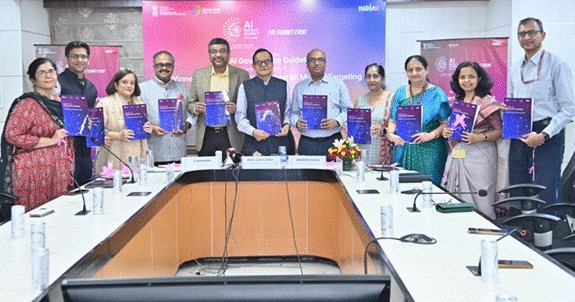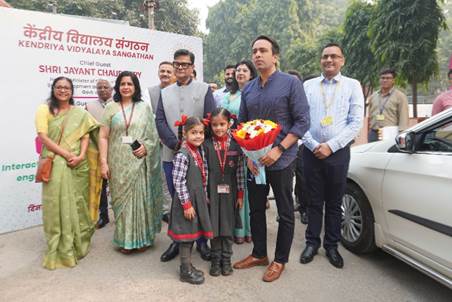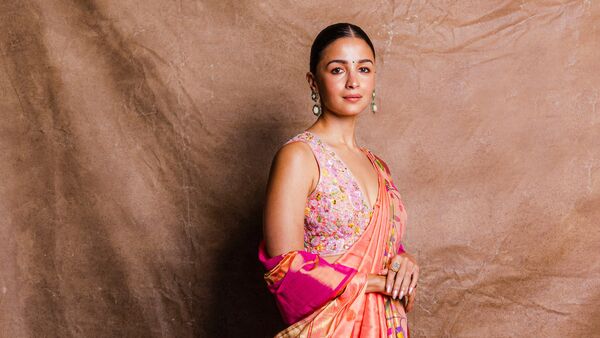World Menopause Day 2025: Ayurveda Empowers Women to Embrace Menopause with Balance and Vitality

On the occasion of World Menopause Day 2025, the Ministry of Ayush has underlined the significance of holistic, preventive, and restorative care for women’s health during the menopausal transition.
New Delhi, October 18: On the occasion of World Menopause Day 2025, the Ministry of Ayush has underlined the significance of holistic, preventive, and restorative care for women’s health during the menopausal transition. Through the Central Council for Research in Ayurvedic Sciences (CCRAS), the Ministry is advancing evidence-based Ayurvedic approaches designed to help women maintain physical strength, emotional balance, and hormonal stability.
Ayurveda’s Integrative Lens on Menopause
Ayurveda classifies menopause as Rajonivritti Janya Lakshana Samucchaya, a natural physiological transition rather than a disorder. It views the stage as an opportunity for rejuvenation through balanced living, dietary discipline, and emotional well-being. The ancient system prescribes Rasayana (rejuvenation therapies), yoga, and herbal formulations to manage symptoms such as hot flushes, mood swings, sleep disturbances, and anxiety.
Vaidya Rajesh Kotecha, Secretary, Ministry of Ayush, said the Ministry aims to make Ayurvedic interventions for menopausal wellness “accessible and acceptable globally” through focused research, clinical validation, and public health integration.
“Ayurveda provides comprehensive guidance rooted in preventive, promotive, and restorative healthcare principles. This approach not only supports women’s physical health but also nurtures emotional resilience and quality of life,” he noted.
Evidence-Based Validation of Traditional Formulations
Prof. Rabinarayan Acharya, Director General of CCRAS, emphasized that Ayurveda’s classical formulations such as Ashokarista and Amalaki Rasayana have shown promising results in supporting hormonal balance, bone health, and mental stability.
“Ayurveda views menopause as a natural transformation, not a disease. Through Rasayana therapies, dietary guidance, and mental well-being practices, women can transition through this phase with balance and grace,” he said.
Dr N. Srikanth, Deputy Director General, CCRAS, added that the council is working to translate traditional knowledge into “evidence-based, practical solutions” for women’s holistic wellness.
Lifestyle, Diet, and Yoga for Menopausal Health
Ayurveda recommends a multidimensional regimen combining herbal support, mindful diet, and yogic practices:
- Rasayana and Lifestyle Interventions: Early adoption of rejuvenating herbs and balanced routines to delay degenerative changes.
- Dietary Guidance: Nutrient-rich foods like fruits, milk, ghee with turmeric, old rice, green gram, and soy help maintain strength and hormonal equilibrium.
- Yoga and Meditation: Asanas like Setu Bandhasana, Vipreetkarani Asana, Marjariasana, and Shavasana promote circulation, flexibility, and emotional calm. Breathing techniques such as Sitali Pranayama and Bhramari Pranayama reduce hot flashes and improve sleep quality.
- Emotional Support: Counseling, stress management, and family involvement are crucial to maintaining psychological stability.
The Ministry cautioned against overconsumption of heavy, pungent, and salty foods, as well as habits like smoking and alcohol intake, which can aggravate Vata and Pitta doshas, intensifying menopausal symptoms.
Integrating Ayurveda into Public Health
The Ministry of Ayush and CCRAS continue to promote Ayurvedic research, awareness campaigns, and clinical studies targeting women’s health. These initiatives aim to bridge India’s traditional medical wisdom with modern healthcare delivery models.
As the world observes Menopause Day 2025, the Ministry calls upon women to embrace Ayurveda’s holistic practices—balanced nutrition, herbal care, yoga, and mindful living—to achieve a smoother transition and healthier aging.
For further reading, CCRAS’ information booklet on menopause is available at ccras.nic.in.








